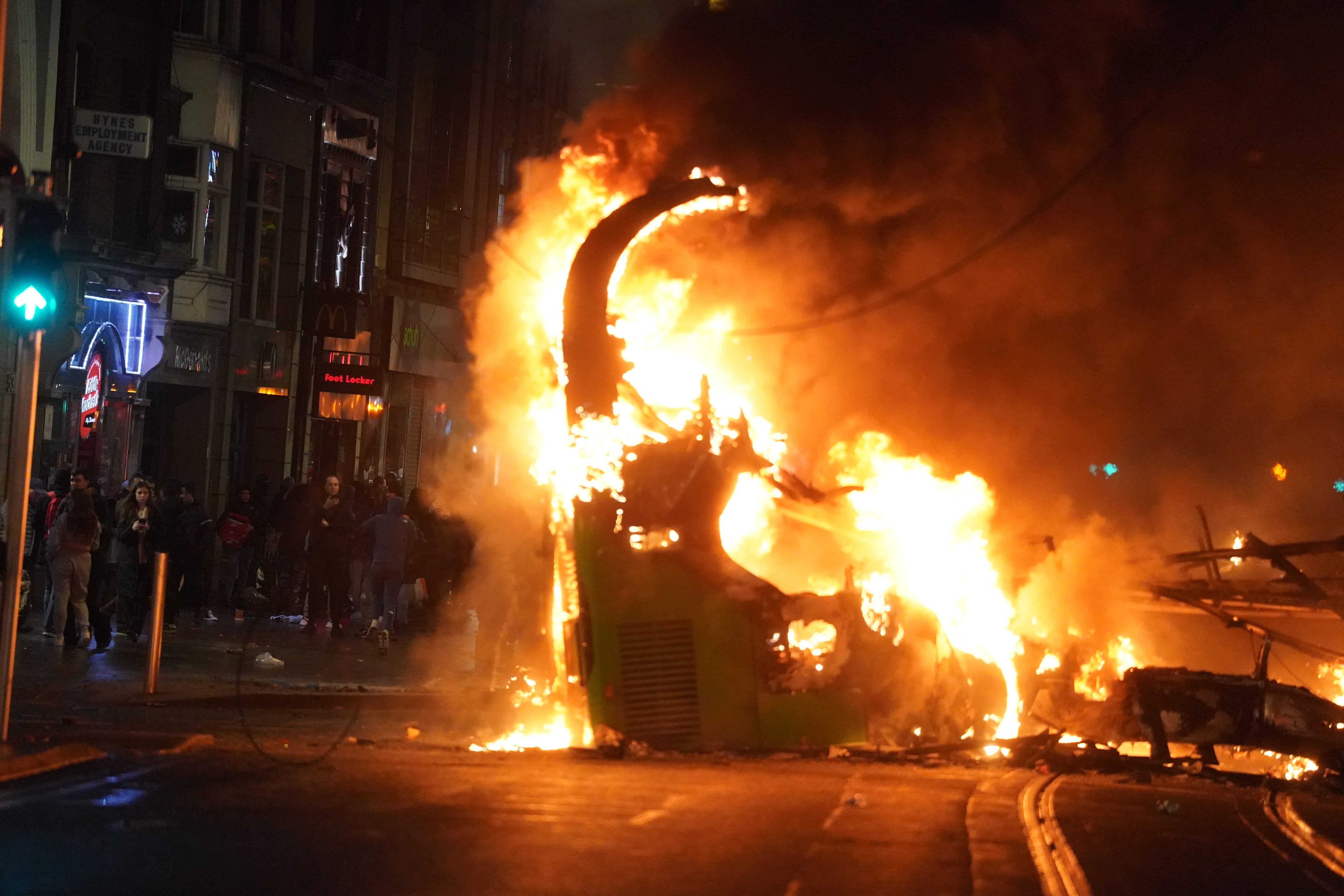Concerns raised over Garda efforts to obtain media images of Dublin riots
The NUJ has called for a meeting with the Garda commissioner after the PA news agency became the latest outlet compelled to hand over pictures.

Garda pursuit of court orders to seize images taken by media photographers during the Dublin riots is gravely concerning, the National Union of Journalists has warned.
The PA news agency has become the latest outlet compelled to hand over pictures taken of the city centre disorder on November 23 after investigating gardai secured an order from a Dublin District Court judge.
Several other media outlets have been subject to similar moves by gardai to obtain images captured during the rioting as part of investigatory efforts to identify perpetrators.
PA’s editor-in-chief Pete Clifton has voiced strong objection and warned of the safety implications for members of the media covering such incidents if a perception is created that content they are capturing will subsequently be used as evidence in criminal justice proceedings.
NUJ Irish secretary Seamus Dooley has called for a meeting with Garda commissioner Drew Harris to discuss the issue.
“The NUJ is gravely concerned at the implications of the decision to demand the handover of images held by media organisations,” he said.
“Journalists, reporters and photographers act independently and must never be perceived as being agents of the State or Government institutions.
“Photographers are especially vulnerable because they are clearly identifiable.
“There is a growing hostility towards media workers at public protests, and the perception that they are not independent further exposes photographers and camera crews.
“The NUJ and media organisations will be seeking a meeting with the Garda commissioner to discuss the wide-ranging implications of the latest developments.”
Mr Clifton expressed concern around the potential for news gatherers to be perceived as targets.
“PA strongly objects to handing over these pictures to An Garda Siochana, but we have been forced to by the court order,” he said.
“The work our journalists and photographers do, providing accurate, verified and trusted images and information from breaking news events, is more important than ever.
“But they could easily become targets in these riot situations if those involved in the disorder believe pictures are being taken that could end up with gardai.
“Our photographers should be free to get on with their vital work without the fear of additional intimidation that the pursuit of these court orders could provoke.”
The Garda said it does not comment on matters before the courts for decision by the judiciary.
In a statement, it added: “In general, in order to vindicate the rights of victims, An Garda Siochana has a positive obligation to legally gather all available evidence before reporting matters to the DPP for prosecution decisions.
“Immediately following the serious public order incident in Dublin city centre, An Garda Siochana appealed to media outlets and media personnel to provide any potential material they had gathered on the evening to help advance its investigation into a range of crimes.”
The force said it took the protection of the right of journalists to report freely and in safety “very seriously”.
It noted that in 2022, it established a Media Engagement Group (MEG) in a joint initiative with officials from the Irish Government’s Department of Media and Department of Justice, journalists and other media representatives.
The Garda statement added: “The MEG provides a reporting mechanism whereby concerns by individual media personnel and/or media organisations can be raised by with An Garda Siochana.
“This enables consistency in the Garda investigative response, the collection of Garda data and intelligence on threats to media personnel and any emerging trends, and the provision, if required, of personal safety advice.”
The statement continued: “The MEG meets as a group on a quarterly basis to review incidents of note and the Garda response to same, emerging trends and issues, items of concerns for media personnel and organisations and to review the MEG process.
“As part of the MEG initiative, An Garda Siochana has hosted information seminars for media personnel on personal safety online and offline.
“The latest such seminar included contributions from several major social media platforms on their media safety measures. These seminars have been very well attended by media personnel.
“In addition, the Garda National Crime Prevention Office has provided personal safety seminars directly to a number of media organisations following requests via the MEG.”
Bookmark popover
Removed from bookmarks